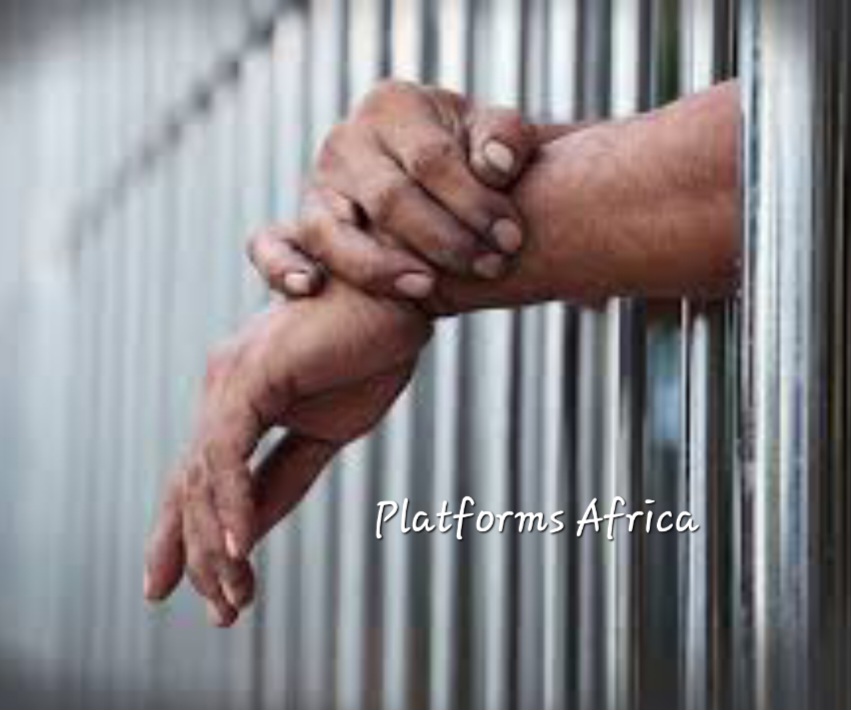Israel and Hamas have reached an agreement for a four-day halt to the devastating war in Gaza, accompanied by the release of dozens of hostages held by the militant group in return for Palestinians imprisoned by Israel, mediators said Wednesday.
The truce marks the biggest diplomatic breakthrough since Hamas’ October 7 rampage into southern Israel ignited a war that has devastated vast swaths of Gaza and raised fears of a wider conflict across the Middle East.
The Persian Gulf nation of Qatar, which has played a key role in mediating with Hamas, announced the deal without saying when it would go into effect. Fifty hostages will be released in stages, in exchange for what Hamas said would be 150 Palestinian prisoners.
Both sides will release women and children first, and the supply of humanitarian aid flowing into the besieged territory will be ramped up.
Prime Minister Benjamin Netanyahu said Israel would resume the war after the truce and keep fighting “until we achieve all our goals,” including the defeat of Hamas.
Residents in Gaza City said the fighting there had intensified overnight into Wednesday, with gunfire, heavy artillery and airstrikes in central neighborhoods.
“They are mad. Apparently they want to advance before the truce,” said Nasser al-Sheikh, who is sheltering with relatives in the Sheikh Radwan neighborhood.
READ ALSO
Sen. Teslim Folarin Lauds NCDMB As 500 Youths Graduate From Solar Power Programme
BREAKING: Court Grants Emefiele N300m Bail
Nigeria, Germany Ink $500m Renewable Energy, Gas Deals
A DIPLOMATIC BREAKTHROUGH
The announcement capped weeks of indirect Qatari-led negotiations between Israel and Hamas, an Islamic militant group that seized Gaza from the internationally recognized Palestinian Authority in 2007. The United States and Egypt were also involved in stop-and-go talks to free some of the roughly 240 hostages captured by Hamas and other militants during their wide-ranging October 7 raid.
President Joe Biden welcomed the deal, saying Netanyahu has committed to supporting an “extended pause” to make sure that the hostages are released and humanitarian aid can be sent to Gaza.
Qatar’s prime minister and top diplomat, Sheikh Mohammed bin Abdulrahman Al Thani, said he hoped the deal would eventually lead to a permanent cease-fire and “serious talks” on resolving the Israeli-Palestinian conflict.
Israel said that the truce would be extended an extra day for every additional 10 hostages released by Hamas. The International Committee of the Red Cross said it is standing by to assist any swap.
Israel’s Justice Ministry published a list of 300 prisoners eligible for release as part of the deal, mainly teenagers detained over the past year for rock-throwing and other minor offenses. Under Israeli law, the public has 24 hours to object to any release.
WILL THE WAR RESUME?
As the full extent of the devastation becomes known and as hostages are released, pressure could grow on Israel to end its war without achieving its goal of crushing Hamas. Even the U.S., Israel’s chief backer, has expressed concerns about the heavy toll on Gaza’s civilian population.
An airstrike overnight hit a residential building in the southern town of Khan Younis, killing 17 people, including children, said Ahmad Balouny, a relative of the deceased. An Associated Press reporter saw the bodies of two children pulled from the rubble, one of them badly burned.
Despite the massive destruction across Gaza and the killing of thousands of Palestinian civilians, Hamas leader Yehya Sinwar will likely present the release of the prisoners — seen by most Palestinians as heroes resisting occupation — as a major achievement, and declare victory if the war ends without removing Hamas from power.
In a statement Wednesday, Hamas said hundreds of trucks carrying humanitarian aid — including fuel — would be allowed to enter Gaza. It said Israeli aircraft would stop flying over southern Gaza for the duration of the four-day cease-fire and for six hours daily in the north.
The war erupted in early October, when several thousand Hamas militants broke through Israel’s formidable defenses and poured into the south, killing at least 1,200 people, mostly civilians, and capturing scores more. Israel responded with weeks of devastating airstrikes on Gaza, followed by a ground invasion.
More than 11,000 Palestinians have been killed during the Israeli offensive, according to the Health Ministry in the Hamas-run territory. It does not differentiate between civilians and militants, though some two-thirds of the dead have been identified as women and minors.
The invasion has caused vast destruction in northern Gaza, including Gaza City, displaced over 1.7 million people and caused severe shortages of food, medicine and other basics throughout the territory. Israel cut off all fuel imports at the start of the war, causing a territory-wide power blackout.
Israel has rejected growing international criticism and vowed to press ahead until it destroys Hamas’ military and governing capabilities, and all hostages are freed.
READ ALSO
No Kobo Since 2001, NNPC Warri Pipelines’ Redundancy Hits 22 Years
BREAKING: State Police Headquaters Under Attack
Nigeria, Germany Ink $500m Renewable Energy, Gas Deals
DEAL COULD DIVIDE ISRAELIS
The return of hostages could lift spirits in Israel, where their plight has gripped the country. Families of the hostages — who include babies and toddlers, women and children, and people in their 80s with health issues — have staged mass demonstrations and pressured the government to bring them home.
But they could also find themselves divided as some hostages are freed and others remain in Gaza. Soldiers are likely to be the last to be freed, and their families may press the government to extend the truce until they return home.
Ofri Bibas Levy, whose brother, sister-in-law and two nephews – aged 4 and 10 months – are among the captives, said the deal puts the families in an “inhumane” situation. Her brother, 34, is not expected to be among the first groups released.
“Who will be released, who won’t? Will the kids be freed? Will they be freed with their mothers or not?” she told The Associated Press before the deal was announced. “No matter which way it happens, there will still be families that will remain worried and sad and angry.”
PAUSE COULD HELP HAMAS REGROUP
The structure of the deal could limit Israel’s ability to press its offensive, even after the truce expires.
Any pause would give Hamas a chance to regroup after suffering heavy losses, especially if it drags things out with additional hostage releases. Israeli troops and tanks are expected to remain in place, despite the risks of being stationary behind enemy lines.
Israel claims to have killed thousands of Hamas fighters, though it has not presented evidence, and destroyed parts of the group’s tunnel system. But Israeli officials acknowledge much of Hamas’ infrastructure remains intact. The military says 68 soldiers have been killed in ground operations.
Some three-quarters of Gaza’s population has been uprooted from their homes, with most packing into overcrowded and unsanitary shelters. Many, if not most, will be unable to return home because of the vast damage in the north and the continued presence of Israeli troops there.
Iran-backed armed groups across the Middle East have been drawn into the war, with Lebanon’s Hezbollah trading fire with Israel on a daily basis along the border and Yemen’s Houthi rebels launching drones and missiles as well as seizing an Israeli-linked cargo ship.
Violence has also soared in the Israeli-occupied West Bank, where more than 200 Palestinians have been killed, mainly during gun battles triggered by Israeli army raids.
Associated Press





